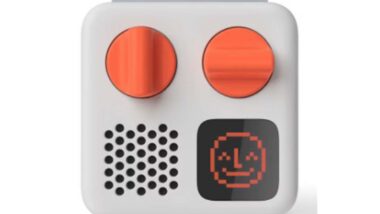
Update:
- A California federal judge would not certify a class representative in a class action lawsuit over Flintstones Complete multivitamin gummies because the complaint is unique to plaintiff Camila Cabrera, according to a Feb. 23 order.
- U.S. District Judge John A. Kronstadt will allow the lawsuit to continue if the plaintiffs ask for leave and supply an alternative named plaintiff.
- Cabrera’s assumption that “complete” meant it included all vitamins instead of all essential vitamins was key to the initial complaint, which Judge Kronstadt ruled was an understanding unique to her.
- “If class certification were granted with plaintiff as the class representative, class counsel ‘will have to devote most of their time and resources’ to Plaintiff’s individual claims as opposed to the advancement of class members’ claims,” Kronstadt writes in his opinion.
(March 24, 2024)
Customers who filed a lawsuit over claims that Flintstones “complete” gummy vitamins do not live up to their advertisements are now asking for class certification.
Just a day after the customers filed their request for class certification, Flintstones maker Bayer Healthcare filed a motion to have the request for class certification denied.
In arguing that they should receive class certification, the customers said that their proposed class of individuals all had comparable experiences with the vitamins, because they all viewed the same advertisements.
They supported this assertion that members of the proposed class suffered similar injuries by citing a survey conducted by Dr. J. Michael Dennis, who served as an expert in the Flintstones class action lawsuit.
Dr. Dennis reportedly determined that reasonable people are misled by the “complete” labeling, believing the term to mean that the multivitamin contains all 13 essential vitamins.
In the consumers’ eyes, belief that a multivitamin contains all of the essential vitamins is an important factor in their purchasing decisions.
Dr. Dennis’ research also indicated that many customers are willing to pay a premium for vitamins that they believed are “complete” and contain all 13 essential vitamins — a reality they claim is common across the class.
The Flintstones false ad class action lawsuit argued that many customers agreed to pay a premium for the Flintstones vitamins precisely because they believed the product contained all essential vitamins.
According to the plaintiffs, the putative class members were financially injured by Bayer because they would not have agreed to pay as much had they known the multivitamins did not contain all essential vitamins.
The Bayer multivitamin class action lawsuit argues that a class action lawsuit is the most appropriate way to address the alleged false advertising.
The plaintiffs say the damages done to each individual are too small for each person to file a lawsuit against Bayer, but the damage done to the class as a whole is significant and merits legal attention.
To support this point, the customers point to a previous class action lawsuit filed against Cingular Wireless, which argued that companies can make a significant amount of money by wrongfully extracting a small amount of money from a large number of consumers.
Bayer has already fought back against the bid for class certification.
According to the company, named plaintiffs Sonnetta Woods and Camille Cabrera undermined their own argument.
Bayer says that, in their initial complaint, the two women did not believe that use of the term “complete” to describe the Flintstones vitamins meant that the product contained all of the vitamins.
Bayer argued that the two women claimed that many consumers believed this to be true, but then admitted that they themselves did not believe it. The company goes on to assert that the plaintiffs “have not found a consumer who supports the core allegations in the complaint” — that “complete” means containing all vitamins.
The company notes that Woods and Cabrera shifted their definition of what they believe “complete” to mean in their bid for class certification. Bayer says that now the plaintiffs say the class members take “complete” to mean not containing all vitamins, but containing the essential ones.
However, Bayer states that even as the consumers have shifted their allegations, they have still failed to nail down what “complete” means. The company argues that the customers could not do this because many individuals in the class have differing ideas of what a “complete” multivitamin is.
This difference in opinion between class members is enough to sink the class certification bid, in Bayer’s opinion, because a named plaintiff’s experience must be representative of the experience of the rest of the class.
This effort by Bayer to block a class certification follows an attempt that the company made last year to have the Flintstones class action lawsuit dismissed based on allegedly improper jurisdiction and attacks on the customers’ claims.
What do you look for in a multivitamin? Do you think a vitamin described as “complete” means something specific? Share your thoughts in the comments below.
The customers are represented by Benjamin Heikali and Joshua Nassir of Faruqi & Faruqi LLP.
The Flintstones multivitamin false advertising class action lawsuit is Cabrera, et al. v. Bayer Healthcare LLC, et al., Case No. 2:17-cv-08525, in the U.S. District Court for the Central District of California.
Don’t Miss Out!
Check out our list of Class Action Lawsuits and Class Action Settlements you may qualify to join!
Read About More Class Action Lawsuits & Class Action Settlements:
- Nature’s Bounty fish oil supplements falsely advertised as promoting heart health, class action claims
- Balance of Nature class action alleges supplements not healthy as advertised
- FDA issues warning for certain tejocote root supplements
- Bayer class action claims company falsely advertises One a Day Natural Fruit Bites products















5 thoughts onJudge declines to certify class in Flintstones Vitamins class action
Please add me
I started buying these Flintstones complete for my two grandchildren and have been purchasing them for months now. I thought it had all the vitamins necessary for my grandchildren now I’m reading this I don’t know what to make of it is there action suit?
also these we’re not cheap vitamins so I thought I was getting the best thank you
I feel it was miss leading and would have went with a different brand had I been more aware upfront.
This should be for the U.S. not just California.
I would not have agreed to pay as much had they known the multivitamins did not contain all essential vitamins for class action inclusion